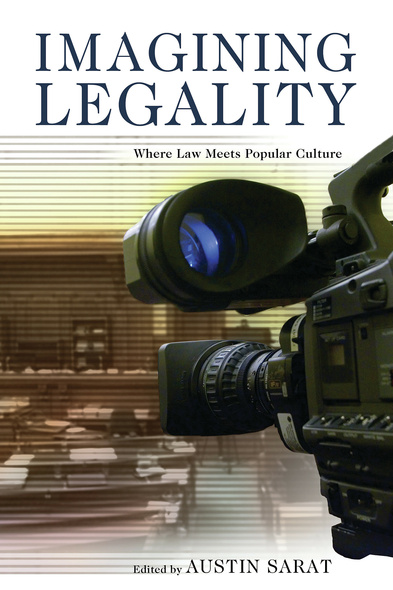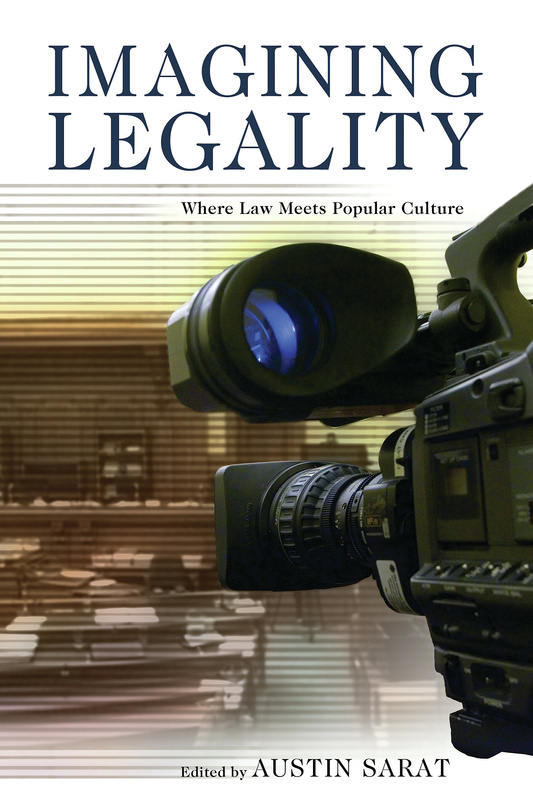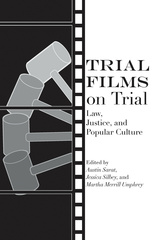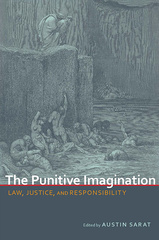Imagining Legality
Where Law Meets Popular Culture
Imagining Legality argues that images of law suggested by television and film are as numerous as they are various, and that they give rise to a potent and pervasive imaginative life of the law. The media’s projections of the legal system remind us not only of the way law lives in our imagination but also of the contingencies of our own legal and social arrangements.
Contributors to Imagining Legality are less interested in the accuracy of the portrayals of law in film and television than in exploring the conditions of law’s representation, circulation, and consumption in those media. In the same way that legal scholars have taken on the disciplinary perspectives of history, economics, sociology, anthropology, and psychology in relation to the law, these writers bring historical, sociological, and cultural analysis, as well as legal theory, to aid in the understanding of law and popular culture.
There is no question that this collection of essays is an original and significant contribution the field, drawing attention from a wide range of scholars concerned with the role that popular culture plays in the constructing of legal meaning. The essays in this volume capture the relationship between popular culture and the law in all its complexity. They offer careful yet creative scholarship that offers new and provocative ways to imagine the relationship between law and popular culture.’ —Susan Burgess is a professor of Political Science and Women’s Studies at Ohio University and the author of The Founding Fathers, Pop Culture, and Constitutional Law: Who's Your Daddy? and The New York Times on Gay and Lesbian Issues
Imagining Legality is an exciting and innovative addition to the field of cultural legal studies, drawing upon the work of some of its best-known scholars. Bristling with a rich range of theoretical perspectives and generic references, Imagining Legality is a stand-out collection; and will become a standard work of reference for scholars and students of law and popular culture alike. With a hit like Imagining Legality, Austin Sarat proves, once again, why he is, without doubt, the David Kelly of televisual and cinematic jurisprudence!’ —William MacNeil is Dean of the Griffith Law School at Griffith University in Queensland, Australia, and the author of Lex Populi: The Jurisprudence of Popular Culture. He is also Associate Editor of Law, Culture the Humanities: An Interdisciplinary Journal.
Richard K. Sherwin is a professor of law and director of the Visual Persuasion Project at New York Law School. He is the author of When Law Goes Pop: The Vanishing Line between Law and Popular Cultureand Visualizing Law in the Age of the Digital Baroque both of which explore the impact of visual communication technologies on the theory and practice of law. A frequent commentator on the relationship between law, culture, film, and digital media, Professor Sherwin's media appearances include NBC's Today Show, PBS, CNN, MSNBC, and American, Irish, and Australian National Public Radio.







